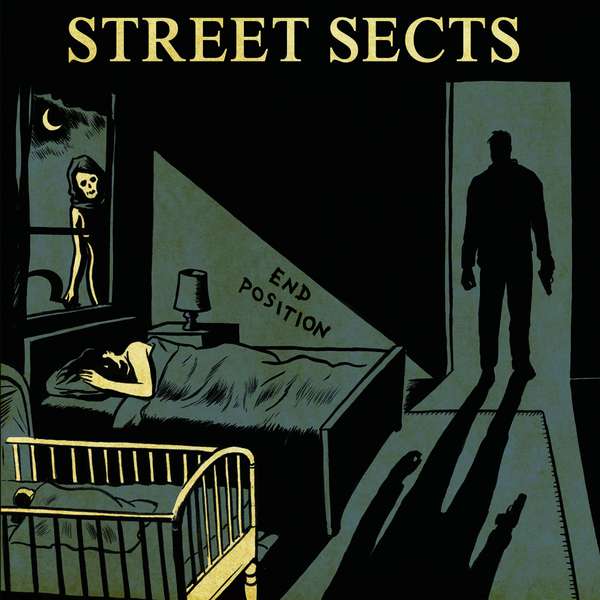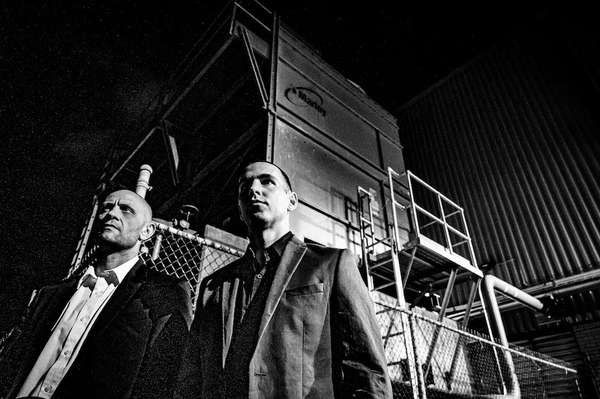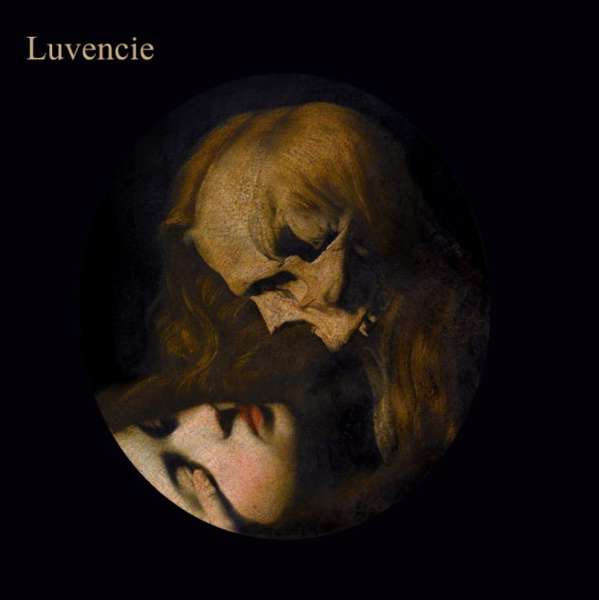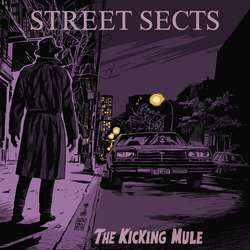Austin, Texas duo achieve an unholy alliance of industrial music and punk rock in their debut album, End Position. In paper it feels that something like that would not work, and a failed attempt to produce something coherent would only end in hysterical laughter. Thankfully, this is far from the case here, and Leo Ashline and Shaun Ringsmuth unleash one hellish meditation on suicide theory, embracing the experimental side of industrial leaders, while keeping a rock instrumentation and punk ethos.
The result is completely erratic, an endless chase through the dark unknown. The tracks are short bursts of aggression and terror, attacks without remorse, hostile and lethal. With the faster moments, Street Sects enact a claustrophobic scenery, a desperate run through dark alleys while something twisted is chasing you. The harm coming towards you is imminent, and the threat is addressed on a mental level. Proper noise rock combines with the punk fury, granting an extra boost of extremity, kicking and screaming with cutthroat vocals and heavy riffs to bring this nightmare to life.
That is where the brilliance of this endeavor rises to the surface, as the industrial mentality is processed. Granting the scenery a more mechanical and cold tone, it actually acts as an additional boost to the terror and horror that the punk attitude addresses. The percussion takes on a manufactured tone, the groove becoming inhumanely accurate and that piercing elements radiating with an aura of constant regression into the void. Even tribal elements come into light, marking a turn for the more animalistic. That is where the malicious side of industrial comes into view, with a hint of an electronic influence, it becomes possible to achieve darker tones, making a perfect soundtrack for a sickening rendition of The Exorcist, or giving way to melodic elements.
That is right, this is not an album in which melody is absent, and actually Street Sects show tremendous ease in bringing to the forefront catchy moments, as the ending of “Copper In The Slots” and the bleak “Featherweight Hate.” It is quite funny actually when compared to the abstract ambient plunge which occurs in the final track, with all the dissonant and extravagant elements, that this album is possible of containing hooks and (some, although few) melodies.
In the end of the day this feels like an album of despair and anguish. As fun as the fast punk parts are, and as heavy and groove inducing the industrial beats, the feeling that overwhelms the record is that of pain and struggle, with the screams of “Our Lesions” highlight that perfectly. “Featherweight Hate?” Please. There is nothing featherweight about this album.






